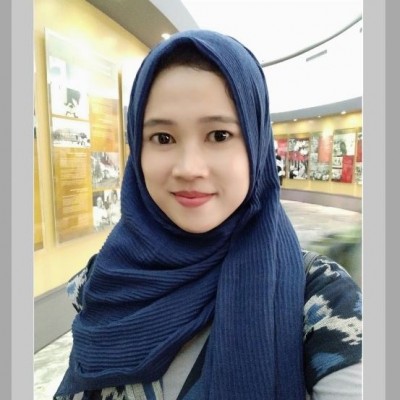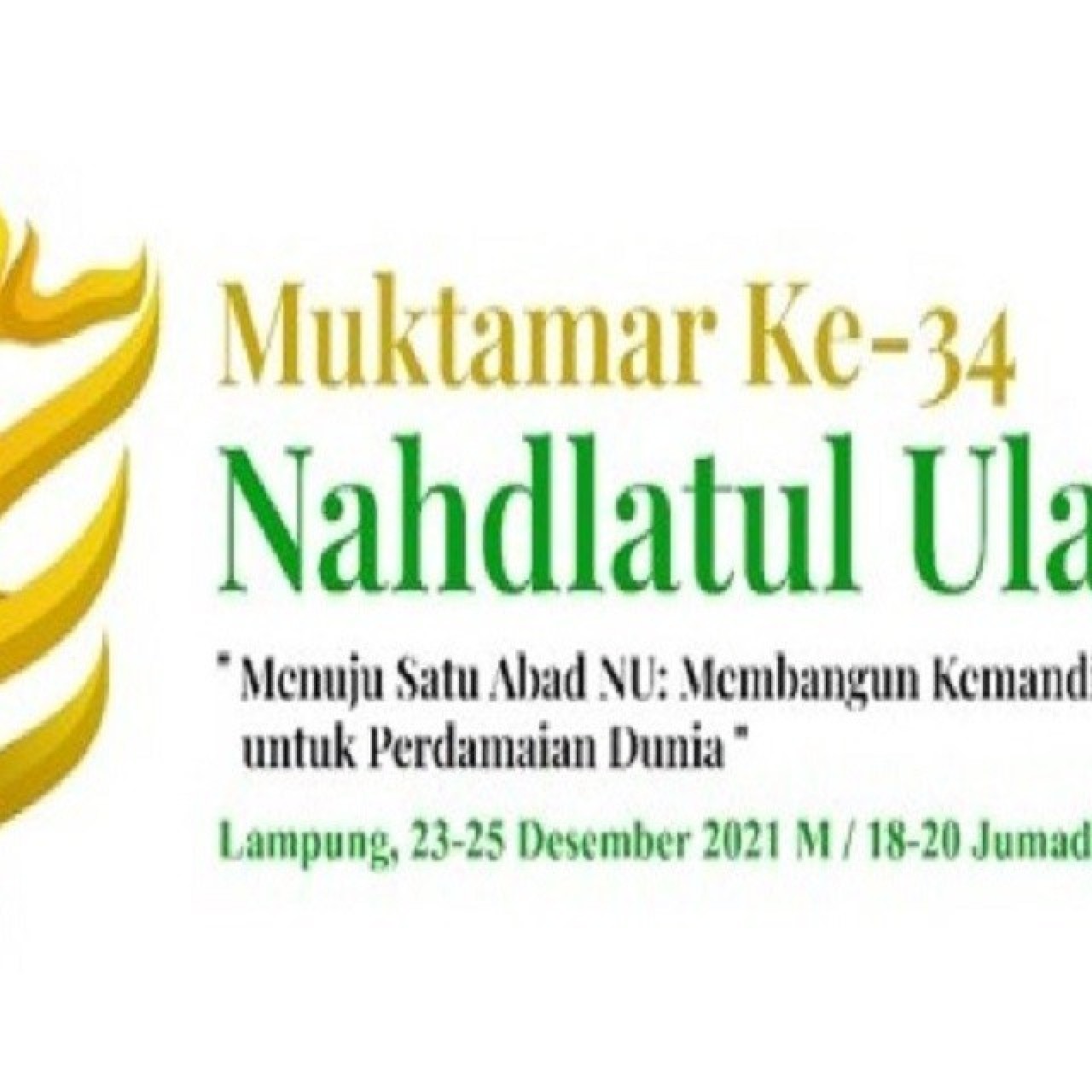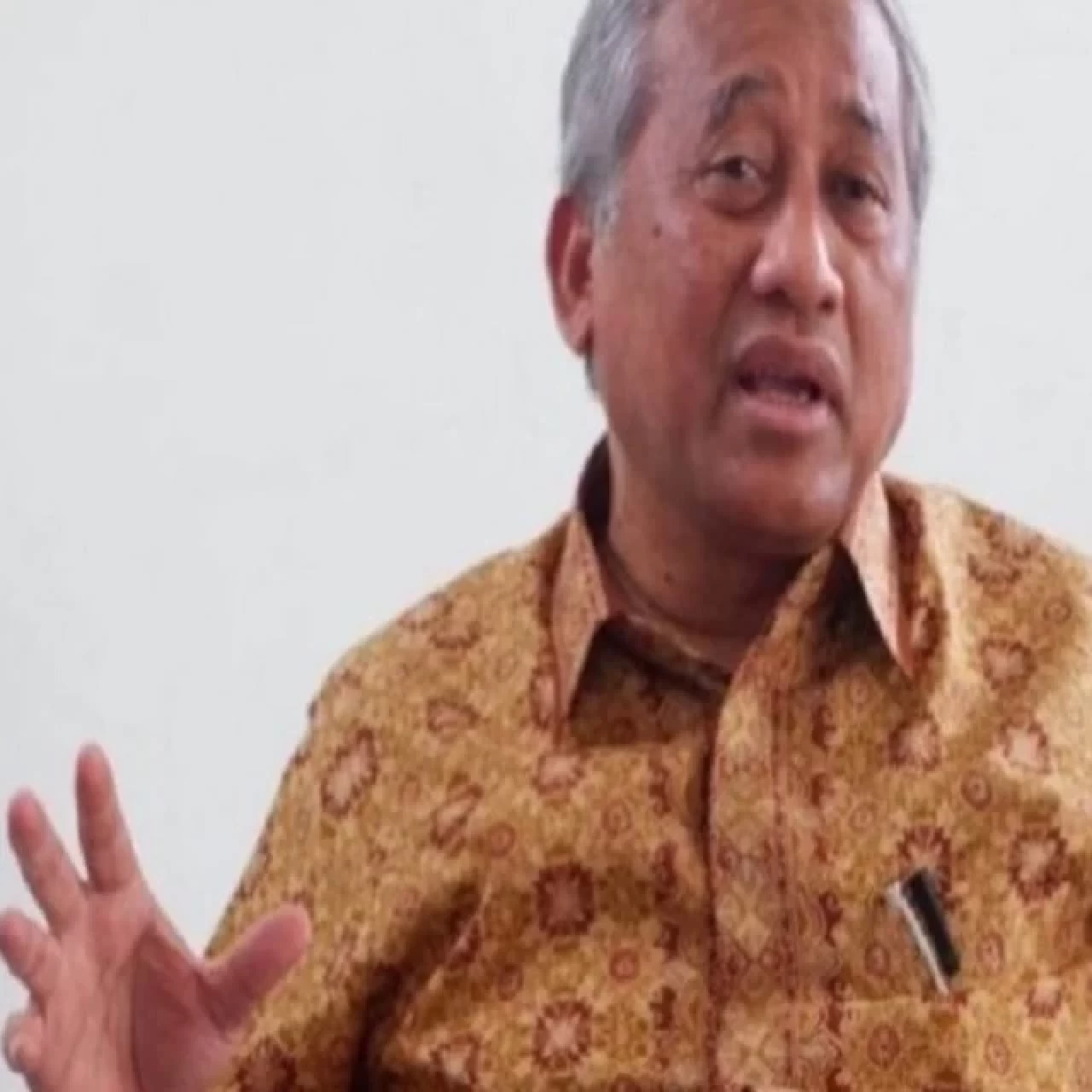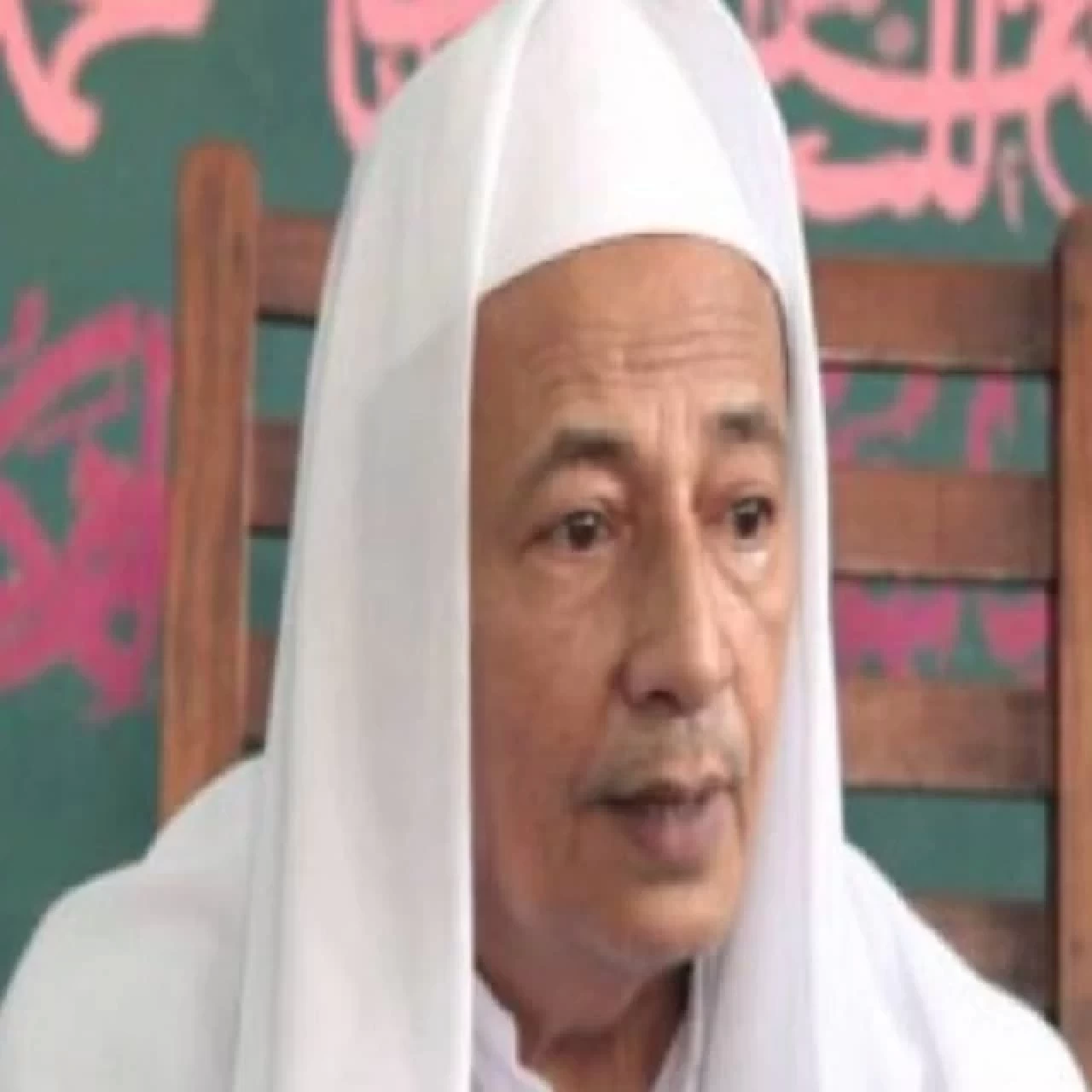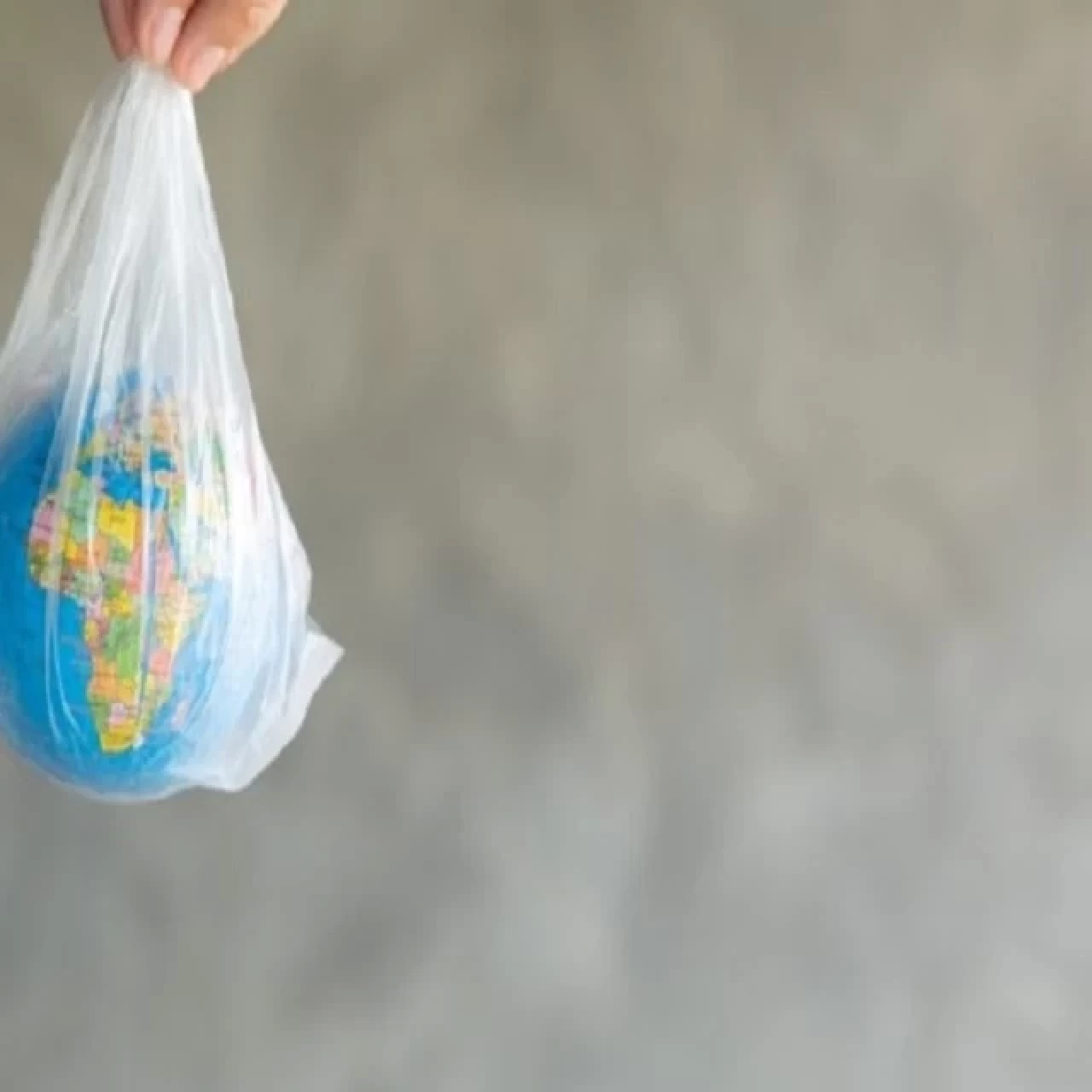NU's achievements in such fields as education, health, and economy
NU Online · Kamis, 23 Desember 2021 | 12:37 WIB
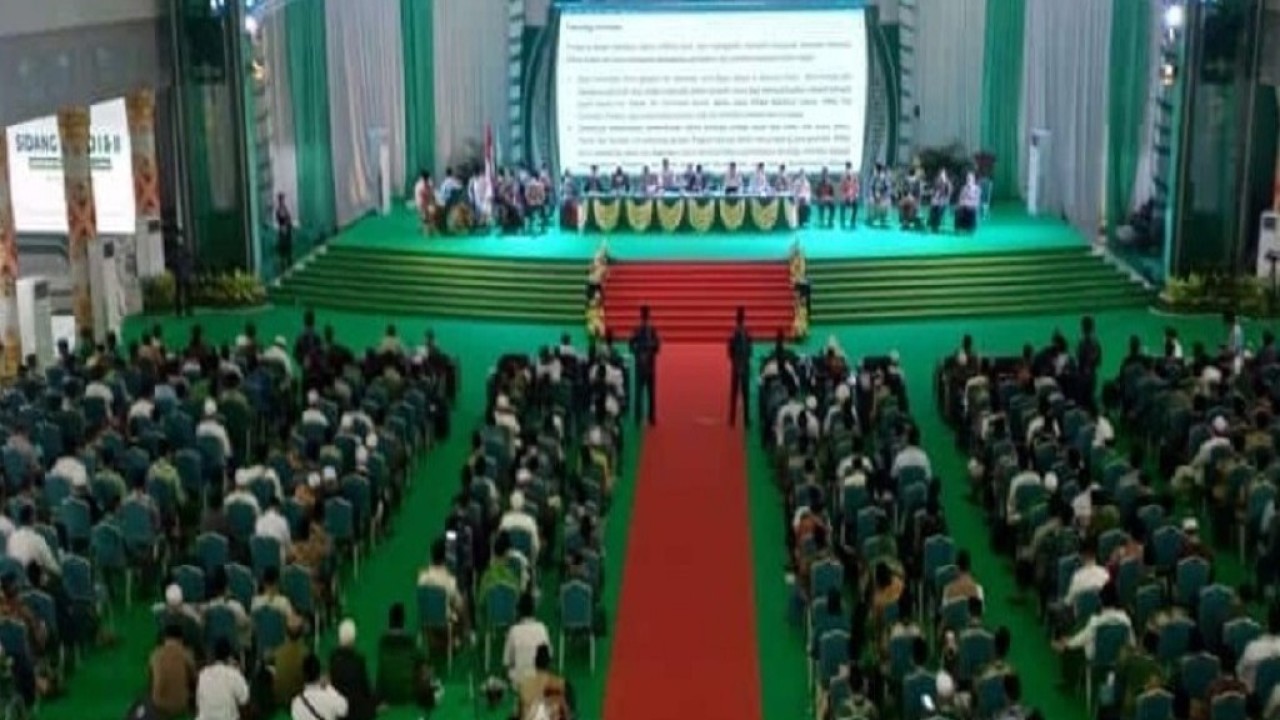
KH Said Aqil Siroj deliver accountability report at Bandarlampung's NU 34th Congress.(Photo: NU Online)
Syifa Arrahmah
Kontributor
Bandarlampung, NU Online
All ranks of the Central Board of Nahdaltul Ulama (PBNU) submitted an accountability report (LPJ) at the NU 34th Congress held at the Multipurpose Building of UIN Raden Intan, Bandarlampung, on Thursday (23/12/2021).
The LPJ read directly by the General Chairman of PBNU KH Said Aqil Siroj covered several NU achievements in several fields, including: strengthening organizational and asset management, religious and Islamic da'wah, public policy, legal advocacy, and disaster management.
In addition, Kiai Said also presented the three areas that became priority references at the NU 33rd Congress in Jombang, East Java, 2015. Here are the three priority areas:
Education
In the field of education, quality management of education for NU Higher Education is increasing accreditation data from unaccredited to good, very good, and excellent status, as well as increasing clustering in the ranking of higher education institutions nationally.
"The best PTNU ranking is the result of an assessment by the Directorate General of Higher Education of the Ministry of Education and Culture in 2020 and also the Directorate General of Education at the Ministry of Religious Affairs," said Kiai Said.
Furthermore, education quality management for Primary and Secondary Education is an effort to affirm the provision of educational development assistance; boosting the acceleration of the quality of education within NU, the pursuit of quality primary school programs as well as the implementation of national-scale events, as well as improving the quality of accreditation at the primary and secondary school levels.
On that occasion, Kiai Said also reported that educational institutions owned by NU at the primary and secondary levels in 2020 amounted to 21,045 educational units with a total number of 7,832 madrasas (Islamic schools).
The number consists of 1,985 Islamic senior high schools (MA), 4,856 Islamic junior high shools (MTs), and 3,672 Madrasah Ibtidaiyah. While the public school category is amounted to 13,213, consisting of 1,670 senior high schools / vocational high schools (SMK/SMA), 1,411 junior high schools (SMP), and 4,751 elementary schools (SD).
"In 2021 there are 274 higher education institutions, including 84 PTNUs under the guidance of the Ministry of Education and Culture, including 15 pesantren-based Community Academies, and 190 PTNUs under the guidance of the Ministry of Religious Affairs," he explained.
Health
In his report, Kiai said the achievements in this field were the prevention and the control of HIV-infected diseases in six provinces and 22 districts/cities, the control of TBC, the prevention of diabetes mellitus (DM) for 16,000 people, and mental health for people with schizophrenia.
In this achievement, PBNU also seeks balanced nutrition education for toddlers and pregnant women, handling malnutrition in the context of accelerating stunting prevention, and the Healthy Living Community Movement (Germas).
Other achievements in this field also include the construction of hospitals and clinics. Reportedly, NU has some 35 hospitals and 7 clinics under the auspices of the Nahdlatul Ulama Islamic Hospital Association (Arsinu).
"There are hospitals that are managed directly by PBNU, PWNU, PCNU, Muslimat NU, and NU universities," explained Kiai Said.
Economics
In this field, PBNU reported that it had an action program to move the people's economy. First, community empowerment in business development through pesantren and strengthening community economic independence, NU Care, the utilization of zakat, infaq, and alms, the utilization of NU lands.
"And there are many more public movements initiated by NU administrators, both personally and organizationally," said Kiai Said.
Furthermore, in the agricultural aspect, simultaneous soil movements throughout Indonesia are in the form of planting corn which covers an area of 73,051 hectares.
The report also mentioned incoming and outgoing balances for the 2015-2020 management period. ZIS revenues amounted to Rp1,854,070,211,358.
Meanwhile, the distribution amounted to 1,758,491,602,385. While the beneficiaries are 35,169,832 people.
Next, One Islamic Boarding School One Product, a collaboration between creative industry producers and stakeholders even Indonesian State Owned Enterprises (BUMN or SOEs). All tThis is expected to give birth to good cooperation between private institutions or between the private sectors and the government that generates benefits for both parties.
Then, the NU Cash application, a digital application of the traditional voluntary economic system in the form of the NU Infaq Box. An effort to digitize infaq among Nahdliyin (NU members) having been going well so far.
"This application provides various features such as zakat, infaq, alms, cash waqf services, including dues for NU members," explained Kiai Said.
There is also the alms movement towards the independence of the people through the NU Infak Box (Koin) program and the launch of the so-called kaderisasi amil program through the Madrasah Amil activities. The NU Koin Program has been widely carried out at PCNUs whose use is very useful for improving the quality of the organization (jamiyah) and services to NU members in particular and society in general.
"The action program to move the people's economy is carried out by PBNU by optimizing existing associations or institutions such as the Nusantara Entrepreneurs Association (HPN NU), the Indonesian Santri Entrepreneurs Association (HPSI), and others," added Kiai Said.
Reporter: Syifa Arrahmah
Editor: Sudarto Murtaufiq
Terpopuler
1
LF PBNU Rilis Data Hilal Jelang Rabiul Awal 1447 H
2
Rais Aam PBNU dan Sejumlah Kiai Terima Penghargaan dari Presiden Prabowo
3
Istikmal, LF PBNU: 1 Rabiul Awal 1447 Jatuh pada Senin, Maulid Nabi 5 September
4
NU Banten Membangkitkan Akar Rumput
5
IPNU-IPPNU dan PCINU Arab Saudi Dorong Tumbuhnya Tradisi Intelektual di Kalangan Pelajar
6
Dirut NU Online Dorong PCNU Kota Bekasi Perkuat Media dengan Ilmu Pengetahuan
Terkini
Lihat Semua

